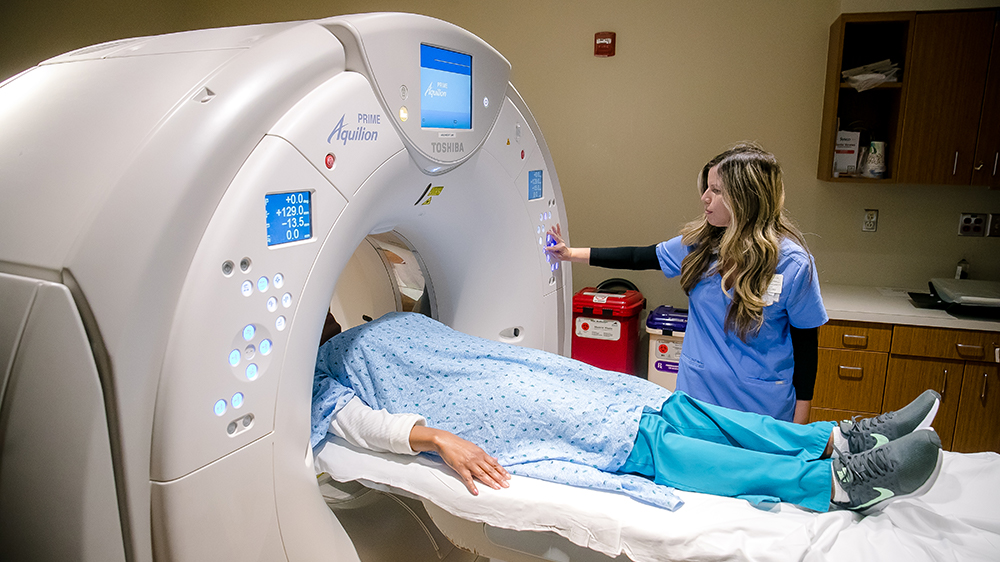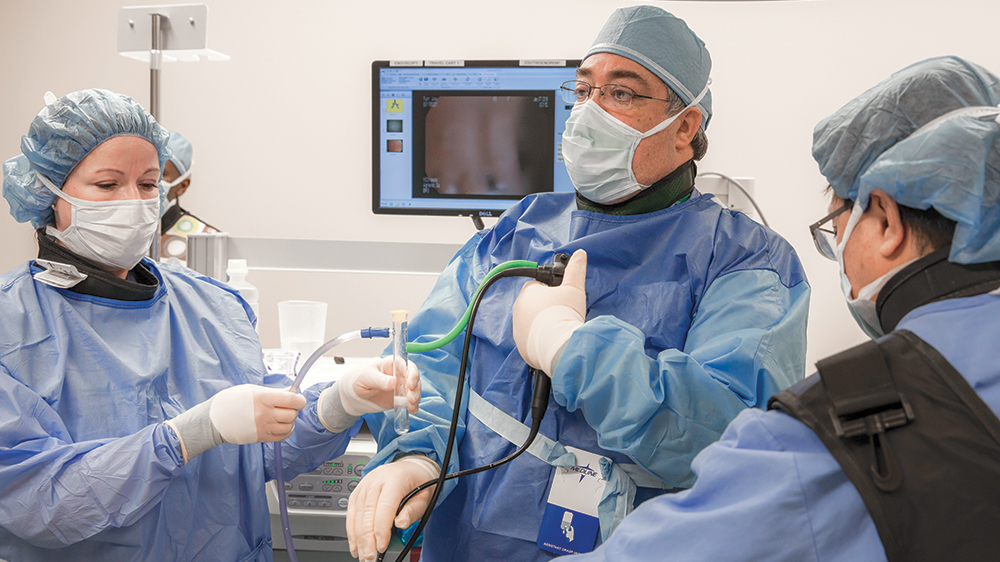If you’re at high risk for developing lung cancer, getting screened could save your life. According to the National Cancer Institute, early detection improves survival rates by 15 to 20 percent.
The purpose of screening is to spot cancer before people show symptoms. By the time symptoms such as coughing and chest pain develop, lung cancer is usually more advanced and more difficult to treat.
Who is at risk?
Every year, about 200,000 people in the United States are diagnosed with lung cancer, and 150,000 people die from it. It is by far the leading cause of cancer death for both men and women in the United States.
Cigarette smoking is the number one cause of lung cancer. The longer you smoke and the more packs a day you smoke, the greater your risk. If you’re a smoker or ex-smoker, you have a high risk and you should talk to your doctor about lung cancer screening.
Risk factors like smoking can be changed. If you smoke, you should stop. But you may not have any control over other risk factors, including age and family history of lung cancer. Secondhand smoke and exposure to toxic substances like radon and asbestos can also increase a person’s risk of lung cancer.
Holy Cross Health is here to help you quit smoking. Sign up for free one-on-one smoking cessation counseling, by contacting Stacey Bisnett at stacey.bisnett@holycrosshealth.org.
About the CT scan for Lung Cancer Screening

A low-dose CT scan is the most advanced diagnostic tool for improved lung cancer screening and early diagnosis. It is recommended annually for people who have a history of heavy smoking, smoke now or have quit within the past 15 years, and are at least 40 years of age (55 if insured by Medicare and Medicaid).
When you get the test, an X-ray machine scans your body and uses low doses of radiation to make detailed pictures of your lungs. The scan shows tiny spots on the lungs, called nodules, years before they would ever be seen on a chest x-ray. These spots could signal early lung cancer when the disease is most treatable.
Holy Cross Health’s Lung Nodule Review Program consists of physician specialists in radiology and thoracic surgery, who review nodules in patient CT scans and determine the next steps for either continued monitoring or diagnostic intervention using advanced, minimally invasive technology.
Improving survival rates
Bryan Steinberg, MD, is Holy Cross Health’s Medical Director of Thoracic Surgery. He says the goal of screening is to find lung cancer when it is at stage 0 or stage 1.
"Thanks to powerful screening and detection tools, we are improving survival by identifying lung cancer in more and more patients at an earlier stage when we can use a combination of treatment options," Dr. Steinberg says. "This means a lung cancer diagnosis is no longer viewed as a death sentence."
Riny Karras, MD, a thoracic surgeon with Holy Cross Health Partners, often counsels patients before and after their lung cancer screening."We have improved the treatment of lung cancer in the last decade," she says. "We have better diagnostic tools, and treatment platforms that provide our patients the ability to return to their quality of life quickly."
Watch Dr. Steinberg and Dr. Karras discuss early screening and the latest diagnostics and treatment options for lung cancer:
Schedule a lung cancer screening
Holy Cross Health offers one of the most comprehensive lung cancer programs in the region, providing patients with a multidisciplinary, patient-centered approach to the diagnosis and treatment of lung cancer. Learn more about our lung cancer program.
Holy Cross Health offers early lung cancer screening for patients who meet the recommended criteria. Learn more about screening options and eligibility, including participation in a research study, or call 855-HCH-HOPE (424-4673) to schedule a screening.
Resources

Thoracic Care

Lung Cancer
- Types of lung cancer
- Early lung cancer screening
Holy Cross Health presents the information in this blog as a resource for our community. It is not intended to replace professional medical advice or to endorse any particular entity or service. Personal health problems should be brought to the attention of the appropriate health professionals.

